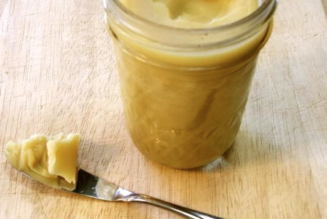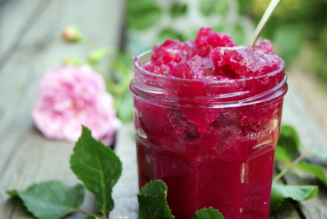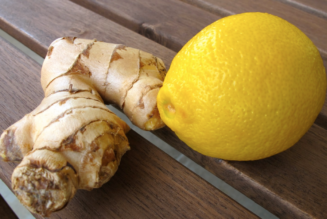Turmeric & Other Natural Spices For Diabetes
It seems that we as a community, are shifting towards natural remedies for many health concerns. This implies returning back to simplicity by improving our dietary intake and correcting our way of living rather than merely popping pills. Ayurveda is considered to be one of the oldest medical sciences known to mankind and is a science of correct living. Ayurvedic principles aim to provide instructions regarding food and lifestyle so that healthy individuals remain healthy and those with health challenges may improve their health.
Turmeric Herbal Supplements
Turmeric is one of the oldest, most important spices known to humankind.
Health Benefits Of Turmeric – Dr. Josh Axe
Some of the main benefits include:
1. Anti-inflammatory which helps relieve pain
2. Helps balance blood sugar levels
3. Anti-microbial properties
4. Supports detoxification
5. Cleans out your arteries
SOURCE – Dr. Josh Axe
“According to Ayurveda, there is no herb or medicine
equivalent to turmeric in the treatment of Prameha (Diabetes).”
According to the American Diabetes Association, the total number of people with diabetes is projected to rise from 171 million in 2000 to 366 million in 2030. In other words, this is a very real concern. The science of Ayurveda dates back thousands of years and has explained diabetes as “prameha” which is a collection of symptoms due to various underlying imbalances rather than just a single disease. For example, prameha which means ‘profuse urination’ is categorized into twenty different types according to Ayurveda. It’s interesting to note that the ancient scholars also described diabetes mellitus [“madhumeha”] many thousands of years ago. Madhumeha is made up of two words, madhu and meha – which implies sweet urine. Similarly, the ancient Greeks called this condition diabetes mellitus due to the passing of sweet urine; i.e. glycosuria.
The ancient Ayurvedic scholars have grouped Madhumeda (Diabetes Mellitus) under one among the 20 pramehas. For simplicity, prameha can be grossly divided into three main types:
1. kaphaja prameha [10 types]
2. pittaja prameha [6 types]
3. vataja prameha [4 types]
Note:
Prameha is obviously a vast topic and this post is simply to introduce basic ideas on how to address diabetes from a natural and holistic approach.
The Root Cause …
Kaphaja prameha reflects, often, the initial and underlying cause of diabetes. In this category there are 10 types. According to the classic Ayurvedic texts, diabetes [“prameha”] begins with the derangement of kapha which spreads throughout the body and mixes with fat [“meda”] creating a mixture of properties similar to kapha; i.e. mucous. When kapha is mixed with fat and passes into the urinary system, it soon interferes with the elimination of urine which eventually effects the quality of urine. One of the underlying causes of disease, according to Ayurveda, is the clogging of channels and the accumulation of waste. Hence, therefore, kaphaja prameha commonly reflects the initial and underlying cause of diabetes.
Causes of Diabetes
The causes of diabetes have been long explained by the ancient teachings of Ayurveda. The causes include:
– lack of physical exercise [“asyasukham”]
– sedentary lifestyle [“alasya”]
– excess sleeping [“svapnasukham”]
– food & lifestyle which increase kapha [“kapha krut cha sarvam”]
– inherited/genetics [“sahaja”]
– stress [“chinta”]
– grief [“shoka”]
– fear [“bhaya”]
Traditionally, the management of diabetes is carried out with lifestyle modifiers along with appropriate herbal therapies. Herbs are selected based upon properties such as:
– tastes [“rasa”]
– properties [“gunas”]
– potency [“virya”]
– postdigestive effects [“vipaka”]
– unique action [“prabhava”]
Turmeric – The Spice Of Life
Turmeric is one of the oldest, most important spices known to humankind. Turmeric is bitter, astringent and pungent in taste, and has a heating quality. Likewise, turmeric has drying and light properties which effectively helps to eliminate kapha – the primary culprit for the manifestation of “prameha” [diabetes mellitus]. What’s of great importance is that, by taking control of the initial stage [“kaphaja prameha”] the disease process is likely to come to a halt and help to prevent the manifestation of complications with are often incurable.
It’s important to note that in Ayurveda, disease often has one or two predominant doshas that need to be balanced according to one’s constitution. Therefore, one therapy many not be applicable to all patients even though individuals share the same disease. Because of this, we highly recommend to always first seek the guidance of a qualified professional and to always first discuss management options with your primary care physician.
 Want a Consultation?
Want a Consultation?
Health is not simply the absence of disease, but is a state of balance that provides for wellbeing, clarity, and joy. Ayurveda – “The Science Of Life” is considered to be the longest continuously practiced system of traditional medicine and emphasizes on creating balance in all areas of life. Not only does Ayurveda examine the body but inquires further about daily diet, lifestyle, relationships, stress, and overall sense of well-being.
Recommended Ayurvedic Practitioners
Other Health Benefits Of Turmeric
Some of the many health benefits of Turmeric are:
1. Common Allergies:
A pinch of turmeric in hot water can be used as an effective steaming method to assist in coughs and colds. Add a pinch of turmeric and salt to warm water and use this for gargling twice a day for alleviating sore throats.
Aller-Defense
Turmeric, lebbek tree & holy basil balance the body’s immune system.
2. Asthma & Bronchitis:
As Turmeric has an affinity with the lungs, it can be used with a holy basil decoction to obtain relief from asthma and bronchitis.
Ayurvedic Products – Respiratory Health
Breathe easier all season along.
3. Anti-Inflammatory:
Consuming 500mg of turmeric daily has been found to have an anti-inflammatory effect on joints and has proved more effective than ibuprofen!
Amrit Kalash
Immunity = Power Up!
4. Anti-Cancerous:
Due to its antioxidant properties, Turmeric has been found to be effective in inhibiting the growth and spread of cancer cells in the body. Recent research in rodents suggests that ‘Curcumin’, a factor extracted from Turmeric, is able to inhibit colon cancer growth and spread.
5. General Malaise:
Can’t get out of your bed in the morning? Feeling tired after a walk? A simple yet delicious tip- Take a pinch of turmeric with hot milk twice daily. Increased energy levels and overall fatigue may diminish.
Ayurvedic Detox Program
For people who want a whole-body cleanse.
6. Beauty:
Turmeric is widely used in many beauty products due to its antiseptic and antibacterial properties. Apply turmeric along with honey for lightening of acne spots and for improving complexion. Using flour, turmeric and water, make a paste and apply directly to the skin and/or pimples for a healing effect. It has been found very effective in hair and skin health.
Youthful Skin Line
Potent ayurvedic formulas to help neutralize oxidants before they damage your skin; provides nourishment for natural, healthy skin cell growth; and helps stimulate collagen synthesis.
7. Dyspepsia:
The use of Turmeric has been found to be successful in cases of dyspepsia. Add a small amount of turmeric to vegetables when cooking.
Ayurvedic Digestive Products
Good health depends on strong, efficient digestion.
8. Alzheimer’s Disease:
Alzheimer’s disease is a neurodegenerative disorder, characterized by progressive cognitive deterioration together with declining activities of daily living, as well as behavioral changes. The many various effects of curcumin, such as its anti-inflammatory and antioxidant properties can help improve overall memory in Alzheimer’s patients.
Other Dietary Considerations For Diabetics
1. Bitter Gourd (Bitter Melon)
To help reduce blood sugar levels, consider extracting the juice from 4-5 karelas and drink this juice first thing in the morning on an empty stomach. Both the fruit and seeds of bitter melon contain charantin which helps to actively lower blood sugar concentrations.
2. Fenugreek
Fenugreek has numerous studies revealing its ability to help relieve symptoms of diabetes.
3. Neem
By consuming the juice of neem leaves it helps to lower blood sugar levels.
Click To Learn More About Neem
Plus …
Consider adding certain pungent and astringent tasting foods such as asparagus, spinach, black pepper, and ginger which are all encouraged for a healthy diet in order to help reduce kapha and help lower blood sugar levels.
Gurmar – The Sugar Destroyer
Gurmar is one of the most prevalent ayurvedic herbs for diabetes. Also known as Shardunika the name Gurmar translates to ‘destroyer of sugar’ and thereby suggestive of its properties as being an effective herb for balancing blood sugar levels.
How To Avoid Sugar Cravings!!!
One moment, you’re innocently going about your day – the next moment, you discover yourself in the clutches of desire. Despite having a healthy salad for lunch it is now 2:30 pm and you somehow find yourself lost in desire with an overwhelming losing battle for a chocolate cupcake with buttercream icing. Click To Learn More About How To Avoid Sugar Cravings
Disclaimer
The sole purpose of these articles is to provide information about the tradition of ayurveda. This information is not intended for use in the diagnosis, treatment, cure or prevention of any disease. If you have any serious acute or chronic health concern, please consult a trained health professional who can fully assess your needs and address them effectively. If you are seeking the medical advice of a trained ayurvedic expert, call or e-mail us for the number of a physician in your area. Check with your doctor before taking herbs or using essential oils when pregnant or nursing.
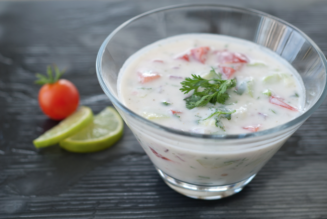

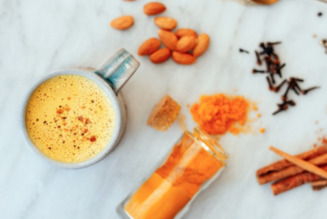
![Female Health: Amenorrhea [cessation of menses] – An Ayurvedic Perspective](https://healthyayurveda.com/wp-content/uploads/2015/07/1.-Amenorhea--327x219.png)

